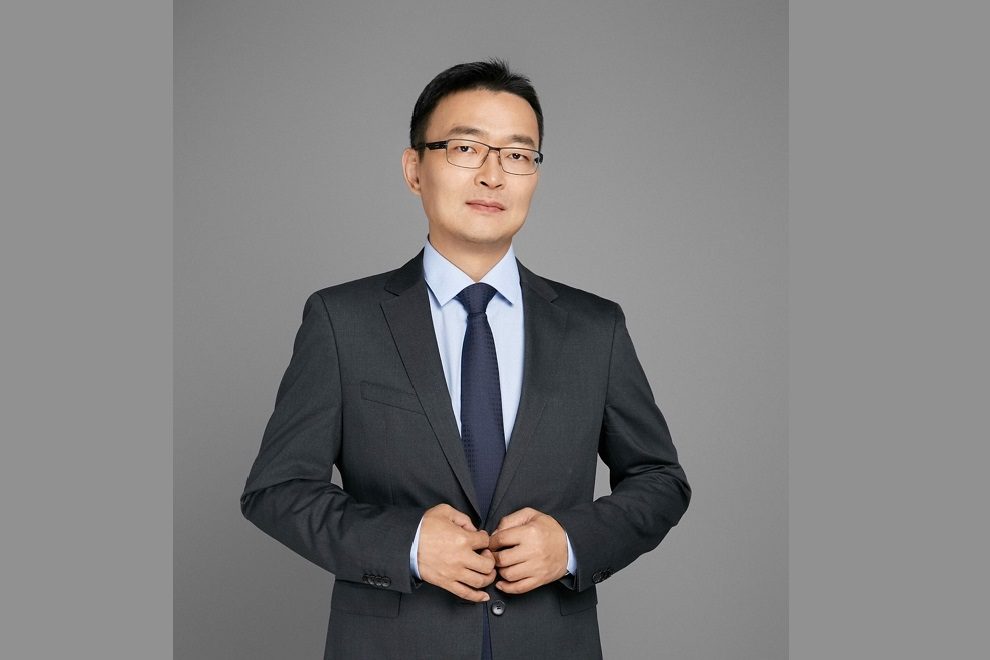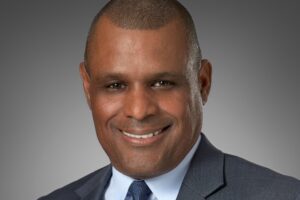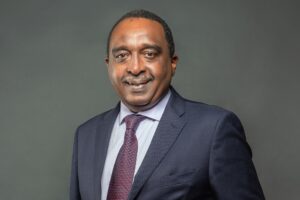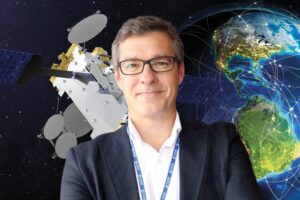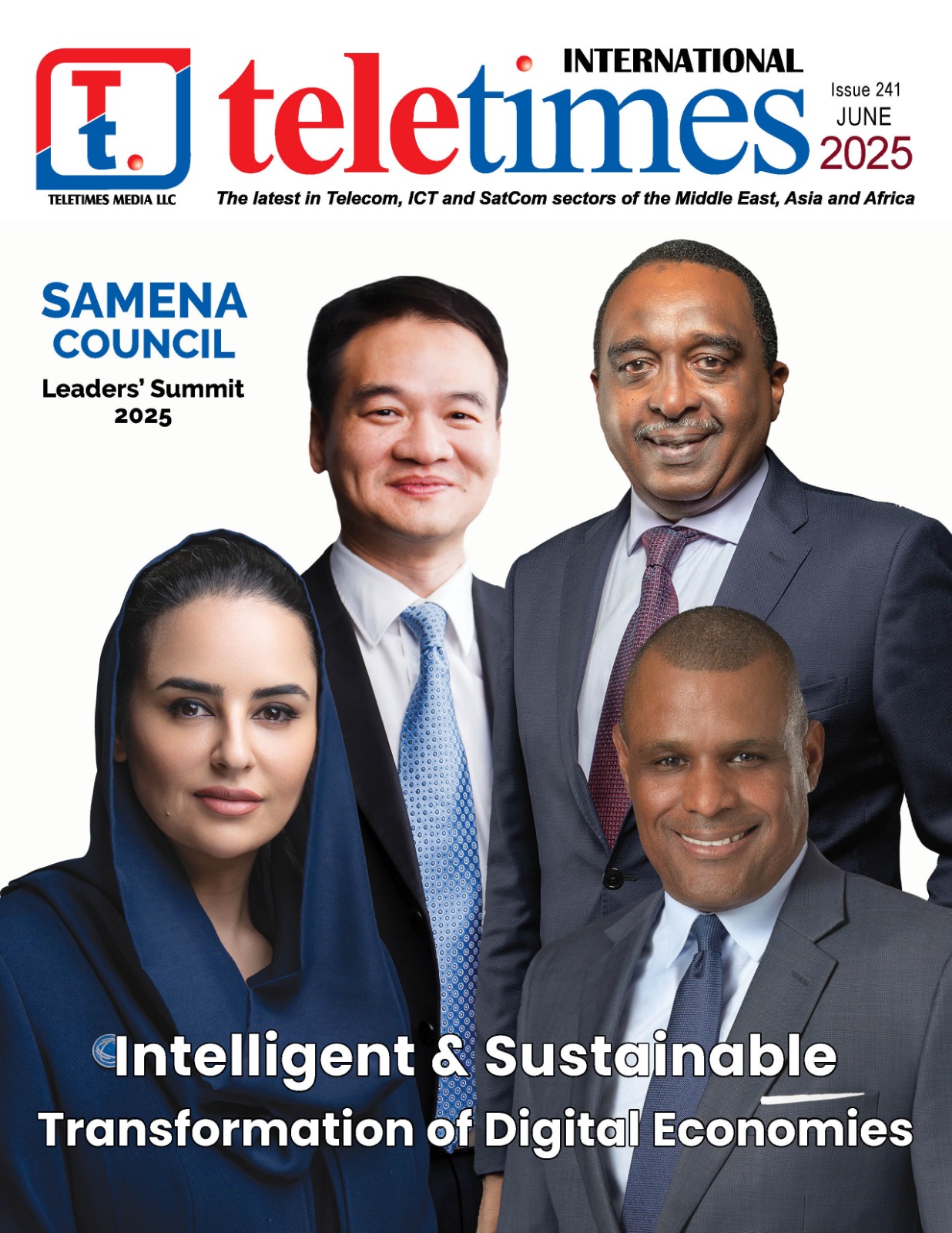Questions by
Teletimes International
Q (Syed): How is Huawei helping the Middle East region to accelerate the national digital transformation plan from vision to reality?
Karl: I think first, in the Middle East region from 2018, Huawei started to build up and collaborate with the Middle East and the GCC countries to build up the infrastructure of 5G. To make GCC countries and the Middle East as a first wave of 5G launch countries in the world, like China, like Japan or south Korea as a first wave. To gain working together with operators in Arabic country to give the chance and ability to all of the users, to the 2C users, 2B users, business users and individual users to access this technology.
It gives them more advantage one or 2 years in time earlier than other regions. Somehow, we can do it and continue, even just now, we’re talking about 6G, we don’t know what the definition of 6G but when the 6G is ready, if we can continue with the GCC country and Arabic country to launch earlier, one to 2 years earlier than other region, like Latin American regions, so you have one to 2 years earlier benefit from this network capabilities. I think this is the first thing we want you to, working not just in the connectivity 5G, mobile, broadband, fiber or transportation network or data center to calculate our storage. As the data center in this region is very booming. It’s very hot in your region but still, you are in the center of the geographic, as the data storage, the data from Asia, the data from Europe, is stored in the Middle East, in the middle of these two continents. Even with the traffic, you’re in the middle. You have some sort of advantage for the latency.
In the mean time, when the infrastructure is ready, I think the most valuable is how to benefit this one or 2 years advantage as a country. It’s to better form your talent, your local digital talent as much as you can in the country, in the University, from their programming capabilities and understanding. Even why not to benefit the harmony OS as an operating system to encourage your students, your entrepreneur, your college students to working on this harmony OS as your own operating system. I think this kind of software development is very important for booming the ecosystem in your own country. I think Huawei in all of the Middle East region, we’re working with 440 colleges and Universities and more than 20 ministry, we signed some MOU in different domain to form, to give in the past years, we’re already in the Middle East region to form more than 45,000 training for the people in Middle East region.
There’s more than 9 thousand engineers who have passed Huawei certification test. Nowadays they have Huawei lessons to certificate your capabilities in the ICT digital domain. They have those kinds of certifications so we will continue our work in this region. In the one hand infrastructure, and one hand is to build up the infrastructure and one hand is to build up the people.
Q (Syed): Thank you for sharing this with us. Would you like to make a comment on it because we have heard a lot about your decarbonizing ICT and promoting CO2. So is Huawei planning anything specifically for a circular economy in the Middle East region? For example, refurbishing the equipment or utilizing this used equipment in Africa or other countries to putting things back in the economy and saving carbon?
Karl: This topic is a hot topic, especially in Europe, America and China. Everyone knows that natural disasters are more and more than in other regions. The hurricane, the fire in the forest. To project, we only have one planet, one human being benefits. So we need to try our best to save or planet from the emission of the CO2 through carbon neutrality. To get a sustainable development is not one shot.
You make pollution, as a traditional part of the economy, you make pollution first, like China, 100 years ago, U.S., or 200 years ago, UK. You make a lot of pollution and you develop your countries and economy and then you realize, you cannot continue like that and you try a lot of energy or money or resources to clean your water, to clean your soil, your air, and then you waste a lot of money to recover, all of the mistakes that you made.
This cannot repeat again for the developing countries. We wish in the beginning, we can go to a sustainable development instead of pollution first, clean after, and then go to that kind of a mode. ICT is kind of an enabler. As I mentioned, first, ICT itself consumes a lot. No matter if it’s data center. No matter if it’s 5G site or 4G site or even the transportation of fiber. They need energy to transform the data from one country to another, from one city to another.
Huawei, our own engagement is we can use less work to transport more heat. Even in our Huawei smartphone. Our smartphone can reduce even with the same battery with a lot of software improvement, our smartphone, versus a computer, Samsung, iPhone, the duration of battery is 30 times, 30 percent or even 50 percent, charging one shot, using all of the days, not like other countries? The same battery but you need to recharge very — a lot of times each day. So ICT himself and no matter the devices or the network, ICT or data center. So Huawei always can represent itself as the best leader in this energy consumption. Our 5G network consumes less than our competitors. Our smartphone consumes less energy than our other competitors. This is our own engagement our promise. We engage. Our own product can reduce 2.7 times energy consuming than our product in 2019 which means six years later, 2025. Almost three times less carbon consuming than the 2019 product. So this is our own engagement of progress to reduce the carbon electricity, power consumption. By different cooling systems, materials to better distribute heat, etc.
So that’s why they can get a lot longer duration of the battery. This is, we can continue to manage ourself in this research on how to distributed the heat in different chemical materials to reduce the light of the requirement to better store. You know, our 5G is still using a human being to install the 5G equipment. You can install our 5G but if you are using other computers, nowadays, it’s very heavy. 100 kilos. We are 20 to 30-kilo. You can install by your manpower but they need a machine to install these very heavy things. So that’s very energy consuming. And in the mean time ICT as an enabler can help all of the other industry to save energy. To increase efficiency. There’s so many examples as I mentioned for the solar panel checking instead of a human checking. Even the agriculture in Brazil, in Switzerland using this to monitor the farmland instead of the human being wasting money and energy monitoring the farmland manually.
Even to do the network check, we are using that kind of technology instead of people climbing to the top of the tower to check everything. We use drone or other technologies to help and take some picture, high definition picture to verify and check if the installation is very well, or it’s not very well installed, the quality of the network.
So a lot of applications to show digital technology can help other industry to reduce carbon and to get a better efficiency.
Ammar: If I may just elaborate a little bit on the answer. I think it all starts from the national advanced strategies of each local market. For example, when it comes to saving energy in ICT countries, the oil and gas industry is very important. We’re doing a lot of exercises with the big companies like Aramco to see how we can save energy and be better when it comes to carbon emissions in the Arab world and GCC specifically.
Another example that Mr. Karl gave about solar power. That’s very important. Smart cities are very very important. So it depends on the national plan and strategy and priorities of each local market so Huawei is keen to align these plans in order to save energy and decrease efficiency as the priorities in the industries. That’s what I wanted to add.


